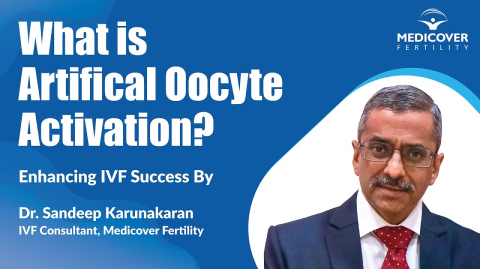What is Oocyte Donation?
Oocyte Donation, also known as egg donation, is a vital advancement in assisted reproductive technology (ART) providing hope to individuals and couples dealing with infertility or genetic issues. It involves a donor contributing healthy eggs, carefully screened for viability, to create embryos. These embryos are then implanted into the intended mother or a gestational surrogate, offering the potential to fulfill the dream of parenthood for those facing challenges conceiving conventionally.
Types of Oocyte (Egg) Donation
- Anonymous Oocyte Donation: The donor’s identity is kept confidential, and the recipient does not know the donor’s details.
- Known Oocyte Donation: The donor is someone known to the recipient, such as a friend, family member, or acquaintance.
- Open Oocyte Donation: The donor and recipient may have the option to meet or communicate, though donor anonymity may still be maintained in some cases.
- Directed Oocyte Donation: The eggs are donated specifically for a particular recipient, often within a known or familial context.
3-4 Weeks (includes donor stimulation and embryo transfer)
Surgery Duration
Sedation for Egg Retrieval
Anesthesia Used
No Need of Hospital Stay
Hospital Stay
1-2 Days for donor; same-day recovery for recipient
Full Recovery Timeline

Indications of Oocyte Donation (Egg Donation)
Oocyte Donation, or egg donation, is recommended in various situations where individuals or couples face certain fertility challenges or genetic concerns that make it difficult or impossible to conceive using their own eggs. Here are some common indications for egg donation Process:
- Diminished Ovarian Reserve: Some women have fewer or lower-quality eggs, making embryo creation challenging. Oocyte donation offers healthy eggs from young donors with better ovarian reserves.
- Advanced Maternal Age: Egg quantity and quality decline with age, increasing risks of chromosomal abnormalities and infertility. Oocyte donation with younger donor eggs enhances pregnancy success.
- Premature Ovarian Failure (POF): Before age 40, ovaries may stop producing eggs. Egg donation allows women with POF to pursue pregnancy and childbirth.
- Genetic Disorders: Couples avoiding inherited genetic disorders might choose egg donation to prevent passing them to offspring.
- Repeated IVF Failures: Couples facing multiple unsuccessful IVF attempts due to poor embryo quality may turn to donor eggs for better outcomes.
- Single Parent or Same-Sex Couples: Individuals or couples lacking viable eggs can use donor eggs to achieve parenthood.
Who Needs Egg Donation or Oocyte Donation?
Oocyte donation is suitable for women experiencing symptoms or circumstances affecting their natural fertility or egg quality.
You may consider oocyte donation if you experience:
- Irregular or absent menstrual cycles indicating poor egg production
- Difficulty conceiving despite normal partner fertility
- Emotional or physical stress due to age-related fertility decline
- Desire to have a genetically related child via donor eggs
- Medical conditions that prevent using your own eggs for conception
How to Prepare for Oocyte Donation
Preparation ensures safety and synchronization between donor and recipient cycles:
- Medical Evaluation: Donor and recipient undergo fertility and infectious disease screening.
- Cycle Synchronization: Recipient’s menstrual cycle is matched with the donor’s using hormonal therapy.
- Endometrial Preparation: The recipient’s uterus is prepared with estrogen and progesterone for embryo implantation.
- Lifestyle Adjustments: Both donor and recipient should avoid smoking, alcohol, and stress before treatment.
- Counseling: Emotional and psychological counseling for both donor and recipient is highly recommended.
Before the Procedure of Oocyte Donation
Consultation and Evaluation
- The intended recipient (intended mother or gestational surrogate) and the egg donor each undergo comprehensive medical and psychological evaluations.
- The recipient's uterine health is assessed to ensure a suitable environment for embryo implantation.
- Legal and ethical aspects are discussed, including informed consent and any contractual agreements.
Egg Donor Selection
- A suitable egg donor is chosen based on criteria such as age, medical history, physical characteristics, and sometimes genetic compatibility.
- Donors are usually young women (18-32 years old) who are in good health.
Synchronization:
- The recipient's and donor's menstrual cycles are synchronized using hormonal medications.
- This ensures that the donor's egg retrieval and the recipient's uterine lining preparation are coordinated.
Ovarian Stimulation and Monitoring
- The egg donor undergoes ovarian stimulation using gonadotropin medications to promote the development of multiple egg follicles.
- The donor's response is closely monitored through ultrasounds and hormone level checks.
Egg Retrieval
- The egg retrieval technique is carried out once the egg follicles have reached maturity.
- Eggs are aspirated from the donor's ovaries using a thin needle guided by ultrasound. The procedure is often done under sedation.
Fertilization and Embryo Development
- Using sperm from the intended father or a sperm donor, the recovered eggs are fertilized.
- Fertilization can occur through conventional IVF or ICSI, where a single sperm is injected into each egg.
- The resultant embryos are cultivated for a number of days in a lab incubator.
After Oocyte (egg) Donation Process
Embryo Selection
- The fertility specialists assess the quality and development of the embryos to determine the best candidates for transfer.
- Any excess viable embryos can be cryopreserved (frozen) for future use.
Embryo Transfer
- One or more selected embryos are transferred into the recipient's uterus.
- The procedure is typically quick and relatively non-invasive, often performed without anesthesia.
Luteal Phase Support
- Hormonal medications (such as progesterone) are given to support the uterine lining and increase the chances of embryo implantation.
Pregnancy Test and Monitoring
- A pregnancy test is done about two weeks after the embryo transfer to determine whether the procedure was successful.
- If pregnancy is confirmed, regular monitoring through ultrasounds and hormonal assessments tracks the pregnancy's progress.
Pregnancy and Beyond
- If the pregnancy is successful, the recipient receives ongoing prenatal care.
- The process culminates with childbirth, allowing the intended parent or gestational surrogate to bring the pregnancy to term and experience the joy of parenthood.
Recovery for the Recipients
Recipients of the embryo transfer also have a recovery phase, although it is generally less invasive compared to egg donors. Here's what recipients can anticipate:
- Rest: After the embryo transfer, it's recommended to take it easy for a day or two. Although bed rest is not usually required, avoiding strenuous activities and stress can be beneficial.
- Normal Activities: Recipients can usually resume their normal activities shortly after the embryo transfer. There's no need to refrain from moderate physical activity.
- Medications: Recipients might be prescribed hormonal medications, such as progesterone, to support the uterine lining and early pregnancy. These medications may cause some side effects, like fatigue or mild cramping.
- Pregnancy Test: A pregnancy test is performed to check for pregnancy about two weeks after the embryo transfer to see if everything went OK.
- Emotional Support: The period between the embryo transfer and the pregnancy test can be emotionally challenging. Recipients may experience anxiety, hope, and uncertainty. Emotional support is important during this time.
Recovery after the Procedure
Since egg donors undergo a surgical procedure for egg retrieval, their recovery period is important to ensure their well-being. Here's what donors can typically expect:
- Immediate Recovery: After the egg retrieval procedure, donors are usually kept under observation for a few hours. Once they are stable and the effects of anesthesia wear off, they are usually allowed to go home on the same day.
- Physical Discomfort: Donors may experience mild discomfort, bloating, and cramping for a few days after the procedure. Pain medications might be prescribed to manage any discomfort.
- Activity: Donors are usually advised to take it easy for a day or two after the procedure. Heavy lifting and strenuous activity have to be avoided at this time.
- Return to Work: Many donors can return to work within a couple of days, depending on their comfort level and the nature of their job.
- Ovulation Symptoms: Donors might experience mild spotting and other symptoms similar to those of ovulation, as their ovaries return to their normal state.
- Follow-Up: A follow-up appointment with the fertility clinic may be scheduled to ensure that the donor's recovery is progressing well.
Benefits of Oocyte Donation
- Higher Success Rates: Using younger, healthy eggs increases the chances of successful pregnancy.
- Overcomes Infertility Issues: Helps women with poor egg quality or low ovarian reserve conceive.
- Genetic Considerations: Avoids passing on genetic disorders from the donor's side.
- Access to Healthy Eggs: Provides the opportunity for healthy embryos when a woman's eggs aren't viable.
- Faster Process: Often quicker than using the recipient's eggs with IVF.
- Family Building: Offers the chance for parenthood to single parents or same-sex couples.
Risks of Oocyte Donation
While generally safe, a few risks may occur:
- Ovarian hyperstimulation syndrome (OHSS) in donors (rare)
- Mild bloating or cramping after egg retrieval
- Emotional stress for donor and recipient
- Minimal risks associated with hormonal medication
- Legal and ethical considerations depending on donor anonymity
How Much Does Oocyte Donation Cost in India?
- Oocyte Donation: Rs. 1,50,000 - Rs. 3,00,000 per cycle
- With IVF/ICSI & Frozen Egg Options: Rs. 2,50,000 - Rs. 4,50,000+ per cycle
Costs vary based on donor selection, clinic reputation, and inclusion of IVF or embryo transfer procedures.





























